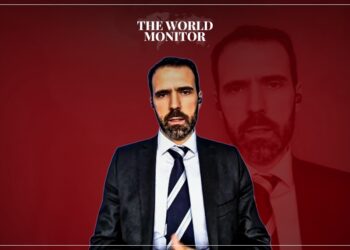Kristalina Georgieva, the Managing Director of the International Monetary Fund (IMF), has called on Arab countries to expedite the transformation of their economies to become more resilient and adaptable in the face of changing dynamics, ensuring a more inclusive and greener digital future. Speaking at the 8th Public Finance Forum in Arab Countries held in Dubai, attended by “Al-Mamlaka,” Georgieva highlighted the increasing significance of the Arab region in a rapidly evolving world, reflected in the depth and quality of its engagements with the IMF. She noted that Arab ministers would play a future role in guiding the operations of both the World Bank and the IMF.
Georgieva announced that the UAE’s Minister of State for Financial Affairs, Mohamed Al Hussaini, would assume the role of Chair of the Development Committee, while Saudi Arabia’s Finance Minister, Mohammed Al-Jadaan, would serve as the Chair of the International Monetary and Financial Committee. This leadership by the Arab world in both entities marks another milestone in the region’s global leadership.
She pointed out that the 8th Arab Fiscal Forum, like the IMF’s annual meetings in Marrakech last fall, evidences the long-standing and evolving partnership between the Arab world and the IMF. Despite ongoing uncertainties, Georgieva expressed cautious optimism about the economic outlook, noting that the global economy had shown resilience, with growth exceeding expectations in 2023 and global inflation expected to decline in 2024. However, she cautioned against declaring victory prematurely.
High interest rates and the need to restore fiscal sustainability after years of increased public spending overshadow the prospects for growth enhancement, Georgieva explained. She emphasized that technological advancements, such as developments in artificial intelligence, could support growth if adequately prepared for.
However, with nearly 40% of jobs globally and in the Arab world at risk, the impact of such advancements remains uncertain, and many countries are unprepared for the scale and scope of the economic transformation ahead. Georgieva warned that countries lacking the necessary infrastructure and skilled workforce to harness these technologies could fall further behind.
For the Middle East and North Africa region, she projected GDP growth to reach 2.9% this year, higher than last year but still below the IMF’s October projections. This outlook is largely due to short-term oil production cuts, the war on Gaza, and continued tight monetary policies.
Georgieva highlighted the “devastating” economic impact of the ongoing conflict on Gaza, where economic activity plummeted by 80% from October to December compared to the previous year, and the West Bank, where it fell by 22%. She stated that the deteriorating prospects for the Palestinian economy would not significantly change without lasting peace and a political solution, assuring continued IMF policy advice and technical assistance to the Palestinian Authority and the Palestinian Monetary Authority.
For neighboring economies, the war affects vital sectors like tourism and has financial implications seen in increased spending on social safety nets and defense. The conflict has led to higher shipping costs and a nearly 50% reduction in Red Sea shipping volumes this year, with potential for further economic damage and challenges for economies still recovering from previous shocks.
Georgieva urged the Arab world to create fiscal space to meet upcoming reconstruction needs, enhance resilience, and generate opportunities for a growing population. She likened the desired economic resilience to the Ghaf tree, known for its strength and ability to withstand harsh conditions while remaining verdant in desert environments.
To achieve this resilience, Georgieva advocated for mobilizing revenues through expanded tax capacity, supported by stronger institutions and better-designed frameworks, emphasizing the critical role of tax policy design.






